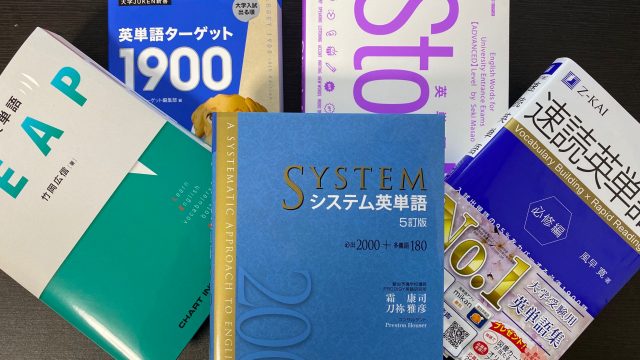
In Japan, the term “Sazae-san Syndrome” refers to the feeling of melancholy or sadness that some people experience on Sunday evenings. The name comes from a popular long-running Japanese animated television show called “Sazae-san,” which airs on Sunday evenings. As the show ends, viewers may feel a sense of sadness or anxiety, knowing that the weekend is over and they must return to work or school the next day.
“Sazae-san Syndrome” is similar to what is known as “Sunday night blues” or “Sunday evening syndrome” in other countries. This feeling is not uncommon, and many people around the world can relate to the emotional state that accompanies the end of the weekend. Various factors can contribute to this feeling, such as stress from work or school, the anticipation of a busy week ahead, or simply the realization that the weekend has come to an end.
There are several ways to cope with the “Sazae-san Syndrome.” One method is to establish a relaxing routine for Sunday evenings that helps to alleviate stress and anxiety. This may include activities such as reading, taking a bath, or watching a movie. Additionally, planning enjoyable activities for the upcoming week can help to shift the focus away from the end of the weekend and towards something positive.
In conclusion, “Sazae-san Syndrome” is a phenomenon experienced by many people, regardless of their nationality or culture. By recognizing the factors that can contribute to this feeling and taking steps to alleviate stress and anxiety, individuals can better manage their emotions and enjoy a more balanced lifestyle.
**Important Vocabulary**
1. Melancholy: a feeling of sadness or unhappiness
2. Anxiety: a feeling of worry or unease about something uncertain
3. Anticipation: the act of expecting or looking forward to something
**Comprehension Questions**
1. What is “Sazae-san Syndrome” named after?
a) A Japanese city
b) A Japanese flower
c) A Japanese animated television show
d) A Japanese dish
2. What is the “Sazae-san Syndrome” similar to in other countries?
a) Monday morning blues
b) Saturday night fever
c) Sunday night blues
d) Friday afternoon joy
3. What are some factors that can contribute to the feeling of “Sazae-san Syndrome”?
a) Work or school stress
b) Anticipation of a busy week ahead
c) Realization that the weekend has ended
d) All of the above
4. Which activity is NOT mentioned as a way to cope with the “Sazae-san Syndrome”?
a) Reading
b) Taking a bath
c) Watching a movie
d) Going for a run
Answers
1. c) A Japanese animated television show
Explanation: The term “Sazae-san Syndrome” comes from the popular long-running Japanese animated television show called “Sazae-san,” which airs on Sunday evenings.
2. c) Sunday night blues
Explanation: “Sazae-san Syndrome” is similar to what is known as “Sunday night blues” or “Sunday evening syndrome” in other countries.
3. d) All of the above
Explanation: Various factors can contribute to the feeling of “Sazae-san Syndrome,” such as stress from work or school, the anticipation of a busy week ahead, or simply the realization that the weekend has come to an end.
4. d) Going for a run
Explanation: The text mentions reading, taking a bath, and watching a movie as activities that can help alleviate stress and anxiety related to “Sazae-san Syndrome.” Going for a run is not mentioned in the text.
日本では、「サザエさん症候群」という言葉は、日曜日の夕方に一部の人々が経験する憂鬱や悲しみを指します。その名前は、日曜日の夕方に放送される、人気の長寿日本のアニメテレビ番組「サザエさん」からきています。番組が終わると、週末が終わり、次の日に仕事や学校に戻らなければならないということを知って、視聴者は悲しみや不安を感じることがあります。
「サザエさん症候群」は、他の国では「サンデーナイトブルース」や「サンデーイブニングシンドローム」として知られているものに似ています。この感情は珍しいものではなく、世界中の多くの人々が週末の終わりを伴う感情状態に共感できます。仕事や学校のストレス、忙しい一週間を控えた期待感、あるいは単純に週末が終わったという実感など、さまざまな要素がこの感情に寄与することがあります。
「サザエさん症候群」に対処する方法はいくつかあります。1つの方法は、ストレスや不安を軽減するのに役立つリラックスした日曜日の夕方のルーティンを確立することです。これには、読書、入浴、映画鑑賞などの活動が含まれる場合があります。また、来週の楽しい活動を計画することで、週末の終わりからポジティブなものへと焦点を移すことができます。
結論として、「サザエさん症候群」は、国籍や文化に関係なく多くの人々が経験する現象です。この感情に寄与する要因を認識し、ストレスや不安を軽減するための手段を講じることで、個人は感情をより上手に管理し、バランスの取れた生活を楽しむことができます。
**重要な単語**
1. 憂鬱(Melancholy):悲しみや不幸の感情
2. 不安(Anxiety):何か不確かなことについての心配や不安感
3. 期待(Anticipation):何かを期待したり、楽しみにする行為
**理解度問題**
1. 「サザエさん症候群」は何にちなんで名付けられていますか?
a) 日本の都市
b) 日本の花
c) 日本のアニメテレビ番組
d) 日本の料理
*答え: c) 日本のアニメテレビ番組*
*解説: 「サザエさん症候群」という言葉は、日曜日の夕方に放送される、人気の長寿日本のアニメテレビ番組「サザエさん」からきています。*
2. 「サザエさん症候群」は他の国では何に似ていますか?
a) 月曜日の朝の憂鬱
b) 土曜日の夜の興奮
c) 日曜日の夜の憂鬱
d) 金曜日の午後の喜び
*答え: c) 日曜日の夜の憂鬱*
*解説: 「サザエさん症候群」は、他の国では「サンデーナイトブルース」や「サンデーイブニングシンドローム」として知られているものに似ています。*
3. 「サザエさん症候群」の感情に影響を与える要因は何ですか?
a) 仕事や学校のストレス
b) 忙しい一週間を控えた期待感
c) 週末が終わったという実感
d) すべての上記
*答え: d) すべての上記
*解説: さまざまな要素が「サザエさん症候群」の感情に影響を与えることがあります。例えば、仕事や学校のストレス、忙しい一週間を控えた期待感、または単純に週末が終わったという実感です。*
4. 「サザエさん症候群」に対処する方法として言及されていない活動はどれですか?
a) 読書
b) 入浴
c) 映画鑑賞
d) ランニング
*答え: d) ランニング*
*解説: テキストでは、読書、入浴、映画鑑賞といった活動が「サザエさん症候群」に関連するストレスや不安を軽減するのに役立つと言及されています。ランニングはテキストで言及されていません。*







